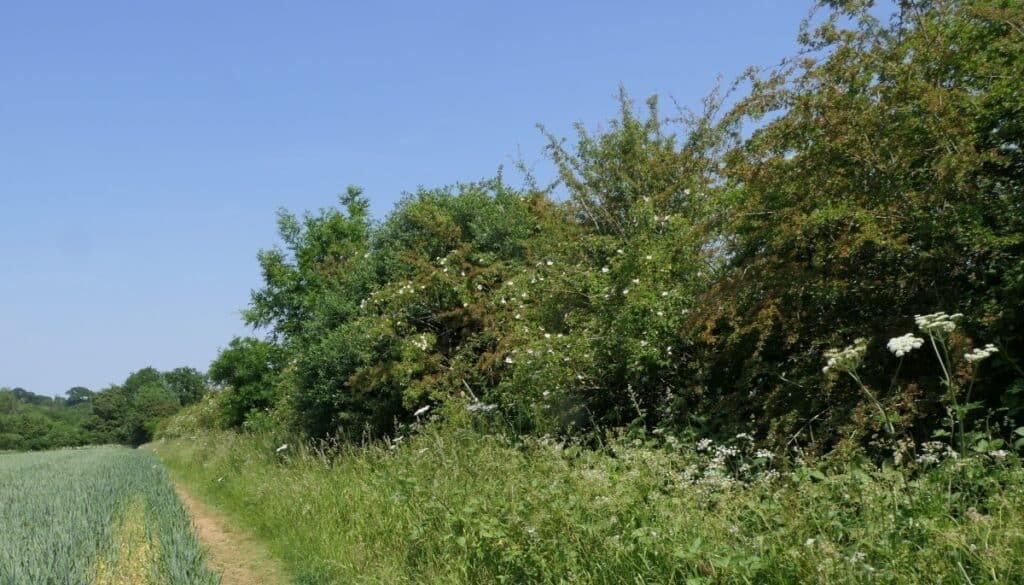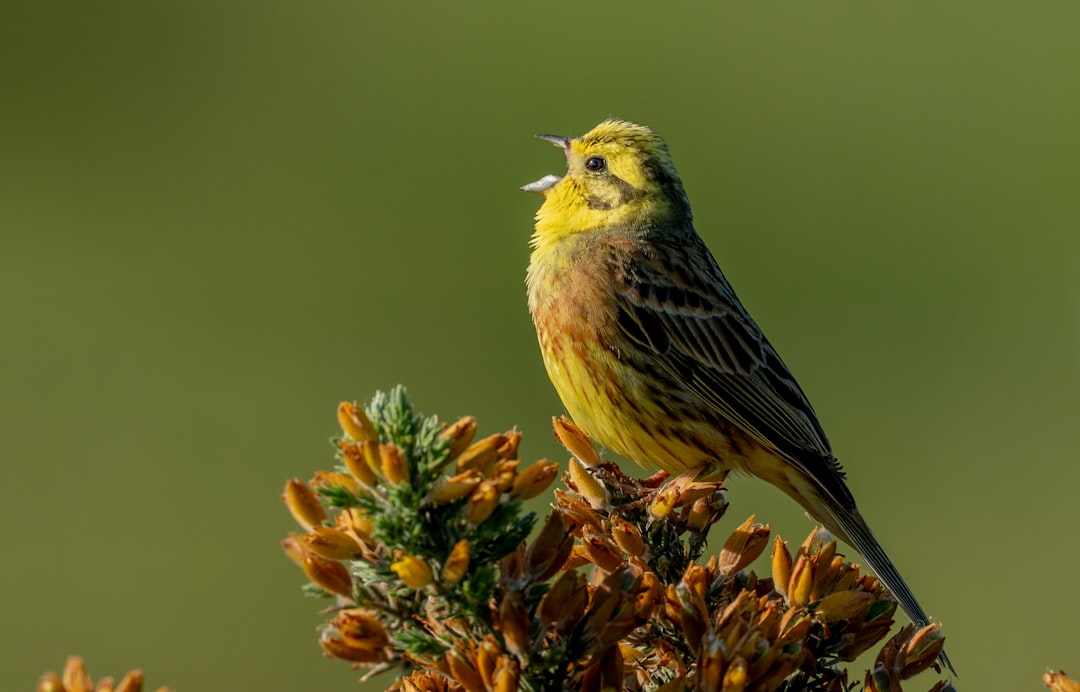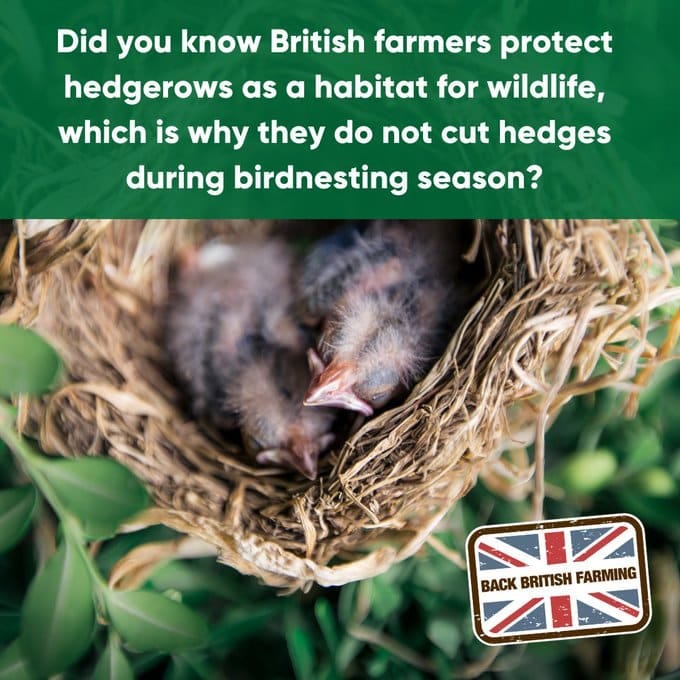Post-Brexit government fails to protect nesting birds, rivers and hedgerows
RSPB says lack of action 'could have catastrophic impact upon iconic farmland species'
As 2023 came to an end, rules that protected rivers and hedgerows expired. Now major charities are calling on the government to give basic protection to nature on farms.
Until 31 December 2023, farmers were obliged to follow regulations, known as cross compliance, if they wanted to receive rural payments from the government. The cross compliance rules meant that farmers had to leave an unfarmed green buffer zone of two metres along watercourses. According to the government at the time, this was vital to "protect watercourses against pollution and run-off from agricultural sources by maintaining buffer strips."
On top of this, the cross compliance regulations gave protection to hedgerows, which support a massive diversity of Britain's flora and fauna. The pre-Brexit rules ensured that farmers were obliged to "keep a green cover on land within two metres of the centre of a hedge." Farmers were also not allowed to apply fertilisers or pesticides to land within that two metres. There were also strict rules on the trimming of hedges. In order to protect nesting birds, farmers were previously not allowed to cut their hedges between 1 March and 31 August. There were also rigorous regulations on the removal of hedgerows.
Protect the Wild has previously stated how important the UK's hedgerows are:
"Hedgerows provide a vital food source for invertebrates, birds and mammals, create corridors between areas that wildlife can travel along in relative safety, and are important for nesting animals. Yet we’ve lost 50% of our hedgerows since World War II (some estimates suggest around 120,000 miles!) and around 60% of the hedgerows we still have aren’t in good condition."
The government has 'ripped up important rules'
The National Trust, Wildlife Trusts and RSPB released a press statement, arguing that immediate action needs to be taken "to fill the gaps left by these vital protections."
Barnaby Coupe, Land Use Policy Manager of The Wildlife Trusts, stated:
“The situation is desperate. The UK Government has ripped up important rules that help protect hedgerows and require buffer strips to prevent river pollution. This danger is compounded by low levels of uptake into new farming schemes which incentivise only the most basic green practices on farm, leaving nature at a net loss.
The Environment Improvement Plan published just this year stated “This government is committed to leaving the environment in a better state than we found it” – but this promise rings hollow now that safeguards against damaging farming practices have vanished. We need to see a firm commitment from Government that protections for nature will be at the very least maintained this year at the same level as the old regulations.
Yellowhammer. Photo by Bob Brewer on Unsplash
Meanwhile, RSPB England commented on the effects the lack of legislation would have on nesting birds. The charity's Head of Sustainable Land Use Policy, Alice Groom, stated:
"In just the last five years, farmland bird species have declined by 8%, but loss of protections for hedgerows now means cutting can take place during this year’s nesting season. This could have a catastrophic impact upon iconic farmland species such as Yellowhammer, Cirl Bunting and Turtle Dove. Species already pushed to the brink urgently need these gaps in protections to be filled, and monitoring and enforcement to be stepped up."
Groom continued:
"Government’s failure to set out a plan for a new regulatory baseline sows confusion for farmers about their obligations, and creates an uneven playing field for those who continue to do the right thing for the environment."
Farming lobby self-congratulates as usual
The farming lobby has reacted to this catastrophic news by posting a series of misleading and self-congratulating statements on social media, claiming for instance that farmers don't cut hedges during bird nesting season because of their love of wildlife. While some farmers clearly do their best for wildlife, there are innumerable reports of hedges being flailed in the spring (as well as early-growing grasses being cropped for silage just as ground-nesting birds like Skylarks are laying).
The facts anyway are that there is no 'bird nesting season' as such (and birds are nesting earlier as the climate warms), and rather than agriculture going warm and fuzzy, the law protects nests: the Wildlife & Countryside Act makes it ILLEGAL 'to take or destroy a bird's eggs or nest, or damage a nest, while that nest is in use or being built' (for more information see our Protectors of the Wild page Nesting Birds, Nests, and the Law).
The risk (admittedly remote given the lack of interest in wildlife crime) of being convicted of breaking the law is the more powerful incentive.
We need a government that protects wildlife
Back in September 2023, Defra announced that it was holding a public consultation on hedgerows, and provided us all with an online questionnaire to fill out. It asked us ridiculous questions, such as whether the buffer zone around important hedgerows should be removed, or whether the period of the ‘cutting season’ should be shortened.
Such questions made us cynical at Protect the Wild. Charlie Moores wrote at the time:
"Given that the trend for this government has been to weaken environmental protections (especially since leaving the EU), and that they have demonstrated repeatedly that they favour farming, development, and infrastructure far above biodiversity, water quality, or improving legislation to protect wildlife, it’s not too cynical to wonder what the changes in this consultation might be leading to."
And now, the three charities have stated that:
"delays in the Government’s response [to the consultation] mean that regulatory gaps between January 1st and the bringing in of new protections are now inevitable."
Time and time again, this Tory government proves that it is not fit to protect our flora and fauna. In fact, Defra (the government department responsible for environmental protection in the UK) goes out of its way to destroy wildlife, whether it is by murdering the badger population, cosying up to the grouse shooting industry, or giving our wild birds zero protection against avian flu. This is, perhaps, unsurprising when there are two unelected trigger-happy ministers in Defra: one who will happily murder cormorants and goosanders for fishing industry profits, as well as lobby against the protection of raptors; and another who put wild birds at risk by approving the release of pheasant and partridges in Special Protection Areas.
This government is wilfully causing immense suffering to Britain's wildlife and clearly can not be trusted to protect it. We urgently need to get pro-wildlife ministers in power before it is too late.
To read more about the current law around hedgerows, visit our Protectors of the Wild page on Hedgerows and the Law
Help us support activists on the ground!
Our content is free but if you choose to take out a paid subscription you’ll be helping activists on the ground take direct action to protect wildlife. Every penny we receive tops up our Equipment Fund to support those in the field. We currently have an amazing 536 of you on paid subscriptions helping fund the above, can you help us reach our next milestone?







It's a lie! Farmers cut hedges whenever they want to and protests are never made against them! Why, because no-one would listen. Report a hedge being cut? You would be laughed at in the countryside!
The nation that loves animals ?? Such a load of crap !!!